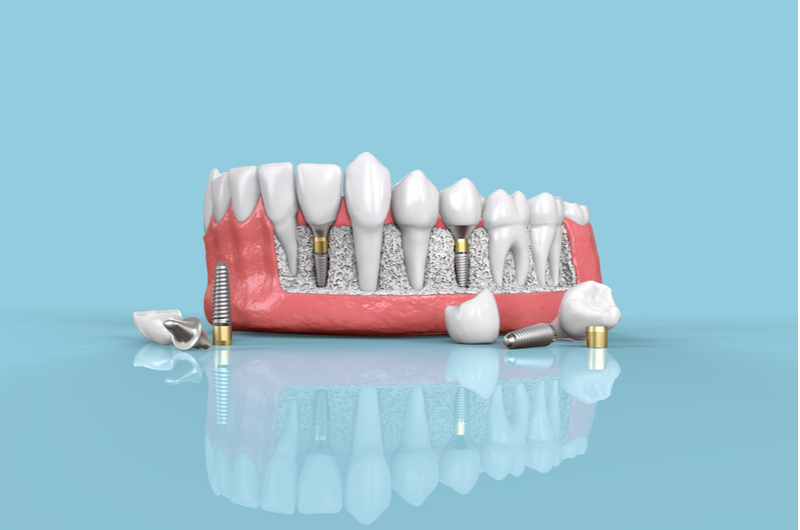Dental implants can can be really expensive, but over time prices have started to come down. More doctors are offering dental implant procedures and with competition, comes savings for consumers. But you need to be careful, because not all $399 offers are the same. Some doctors offer $399 dental implants, but then add hundreds or even thousands of dollars in fees. Often total fees will add to over $3,000, so the $399 dental implants will actually cost $3,399, but that number is not as appealing in an advertisement. So do your research and find out what the total cost will be. Don’t be shy, it’s your mouth and your wallet, so ask questions and don’t let the dentist office try to fool you in just trusting them. It’s ok to walk away.
Dental Implant Prices: Starting Costs As Low As $399 and Sometimes Even Lower

Normal Cost of Implants
The cost of implants can start at about $2,000 and go up to about $5000. However, no need to panic, because you must consider how much tooth space you’re covering. Though, you do have options. Your insurance may cover all or part of the cost.
Some dentist’s offices finance the cost of dental implants for their patients or work with companies that do. When you are looking for a dentist to do your dental implants, be sure to ask about payment options. Most places are willing to work something out with you, because they want to see you with a healthy, new smile.
Are Free Dental Implants Possible?
Some organizations have programs to provide free dental care, including dental implants. The Bureau of Primary Health Care provides support for federally-funded community health centers that offer free or reduced-cost health care, including dental.
The Donated Dental Services (DDS) program provides free, comprehensive dental treatment for people with disabilities or who are elderly or medically compromised and cannot afford necessary treatment and are not eligible for public aid.
One last option is with Dental schools that are generally known for offering their services at a reduced cost. In some cases, they may have additional programs or clinics set up specifically for low-income, no-insurance individuals.